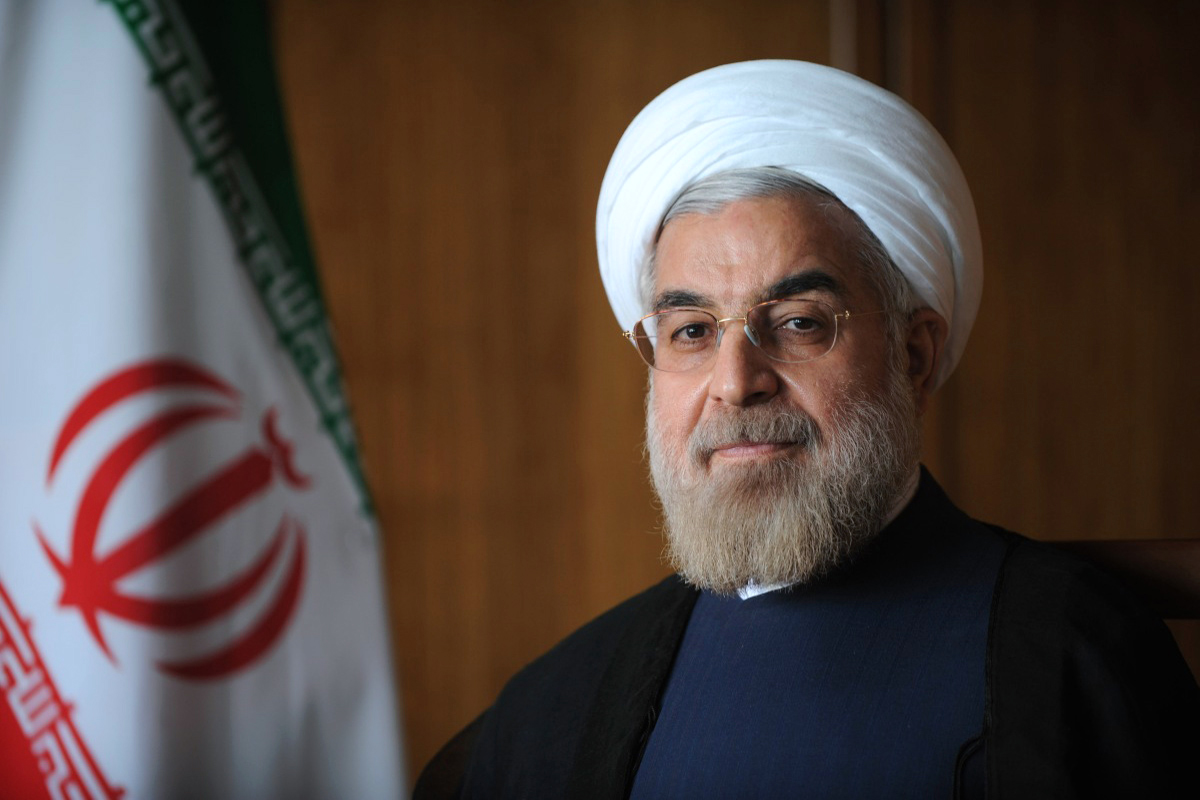Iranian President Hassan Rouhani underscored the country’s firm decision to continue progress and development, and said Tehran doesn’t accept continued sanctions, FNA reported.
 Iranian President Hassan Rouhani underscored the country's firm decision to continue progress and development, and said Tehran doesn’t accept continued sanctions, FNA reported.
Iranian President Hassan Rouhani underscored the country's firm decision to continue progress and development, and said Tehran doesn’t accept continued sanctions, FNA reported.
"We have taken important steps in area of foreign policy in relations with the regional states and other world countries, have continued the path of problem settlement, especially with regard to the nuclear case, mightily and without heeding the marginal moves and will continue this path to the end," Rouhani said, addressing a large gathering of Iranian people in the Central city of Qom on Wednesday.
He referred to the Geneva agreement inked between Iran and the world powers in November 2013 to settle the differences on Tehran's nuclear program, and said, "In light of the interim agreement, a part of sanctions were removed; sanction is oppression against people, and development is the inalienable right of the Iranian people. With God's help, we will continue the negotiations with logic and reasoning but the other side of the talks should know that the Iranian nation would never stop moving on the path of scientific development."
Stressing that the sanctions against Iran are cruel, illegal and against the human rights, Rouhani said, "We are not isolated in the world, rather these are the others who are isolated. We continue our path and in the negotiations we don’t accept to undergo the will of others, humiliation and continued sanctions."
His remarks came after the Iranian and American teams of negotiators started several days of talks in Geneva on Friday. Then after two days of negotiations, Iranian Foreign Minister Mohammad Zarif, Head of the Atomic Energy Organization of Iran (AEOI) Ali Akbar Salehi and President Rouhani's brother and senior aide Hossein Fereidoun as well as US Secretary of State John Kerry and Secretary of Energy Ernest Moniz joined their deputies in the talks.
After two days of intensive negotiations with his US counterpart, Zarif said that Tehran and Washington had "serious, useful and constructive" talks in the last few days, but there was still a long way ahead before a final nuclear deal could be struck.
Speaking to reporters on Monday and after two days of talks with his US counterpart, Zarif said, "We have made progress on some topics to some extent, but there is still a long way to pave before reaching a final deal."
He noted that Iran and the G5+1 had "serious, useful and constructive" talks, especially with the US whose secretaries of state and energy also took part in the negotiations.
The Iranian foreign minister reiterated that there would be no agreement unless both sides agree on all issues.
Also yesterday, Zarif warned Washington that exerting pressure on Tehran during the ongoing nuclear talks would receive negative reactions.
Asked by Iran's state-run TV about US Secretary of State John Kerry's recent remarks in London that Washington would leave the talks if Iran did not take a "productive" decision to prove the "peaceful" nature of its nuclear program, Zarif said, "We didn’t see any sign of such remarks in the negotiations, but of course it is clear that any side which feels that its interests, view and goals aren’t considered, it may leave the negotiations."
Stressing that Iran was ready for reaching a final deal, he said, "We are after a solution which recognizes the Iranian people's rights completely and the negotiating sides surely know that if the Iranian people's rights are not respected and their technical achievements are ignored, there won't be a deal."
Zarif underlined that Iran was not after leaving the talks, and said, "We have entered the negotiations within international frameworks and with political resolve, and we have not and will not be entangled in media games."
"We have stepped into these negotiations for the sake of our own political goals, and not for the objectives of others," he said.
Asked to express his judgment about the final results of the talks, the Iranian top diplomat said, "As long as we haven’t reached definite and final results, it would be still soon to express a judgment because the negotiations may be led to a deadlock or get out of the deadlock by even one single sentence and we should wait for the attainment of agreements on details as well."
Asked about the possibility of extending the negotiations, he said, "We don’t think about an extension since we believe that extending the talks will not benefit anyone and will not benefit the settlement of issues."
"We should reach an agreement on all details because there is already an understanding attained about the generalities," Zarif underscored.
Noting that the details had taken the time of negotiators, he said, "If we cannot reach an agreement over the details, it will be very hard to speak about an agreement."
Asked about some western media news on the achievement of an agreement on general points in this round of the Geneva talks, Zarif said, "There won't be a detailed or general agreement, rather we believe that agreement (over the generalities and details) should take place simultaneously. Of course, we cannot make an agreement over all issues in one moment, and we are, thus, necessitated to study issues one by one and we are doing the same thing right now."
Zarif said some positive steps had been taken over certain topics, "but the final agreement is to include a complete set of general and detailed points".